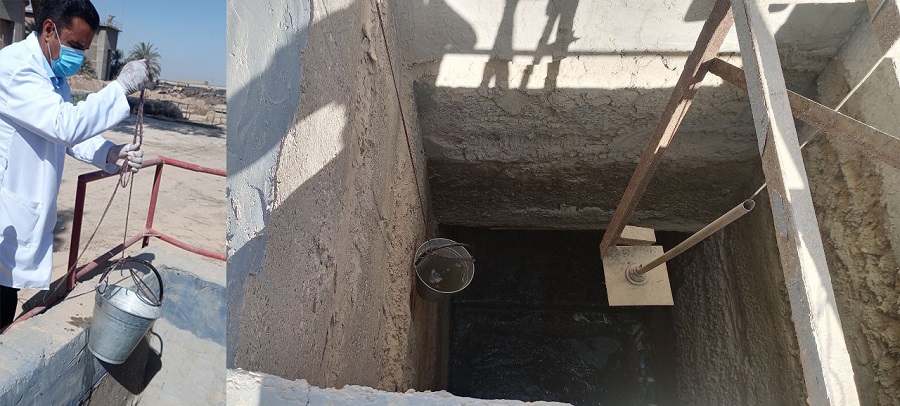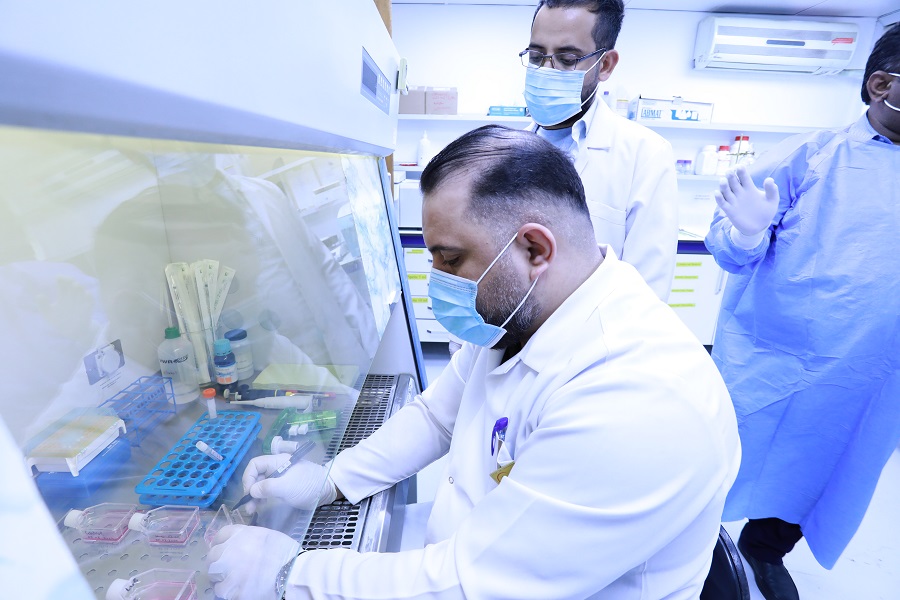 Environmental surveillance has been used successfully to monitor poliovirus circulation and assess the extent or duration of the epidemic poliovirus circulation in a specific population
Environmental surveillance has been used successfully to monitor poliovirus circulation and assess the extent or duration of the epidemic poliovirus circulation in a specific population
Baghdad, 9 May 2022 — The Ministry of Health and the World Health Organization (WHO) have initiated environmental surveillance for polioviruses to further strengthen the nationwide polio surveillance system in Iraq.
The establishment of environmental surveillance for polioviruses will complement acute flaccid paralysis (AFP) surveillance for more robust polio surveillance that ensures early detection of polioviruses in humans or the environment.
“The environmental surveillance is a milestone in enhancing polio surveillance in Iraq,” said Dr Ahmed Zouiten, WHO Representative in Iraq. “Maintaining polio-free status in Iraq is only possible with effective and continued environmental surveillance,”
“This is just an initial stage of our quest to advance environmental surveillance in Iraq. We’re planning to expand the number and locations of surveillance sites in high-risk areas, including religious mass gathering sites such as in the holy sites of Karbala and Najaf and high-population movement areas like Basra and Erbil,” he added.
Wild polioviruses have been detected in the environment in the absence of reported AFP cases. Environmental surveillance is also a potential tool for monitoring circulating vaccine-derived poliovirus (cVDPV2). Environmental surveillance has been used successfully to monitor enteric virus circulation and assess the extent or duration of epidemic poliovirus circulation in a specific population.
In coordination with the Ministry of Health and National Polio Laboratory, WHO has supported renovation of the laboratory and procured supplies, including equipment, kits and reagents. Prior to the launch of environmental surveillance, WHO conducted intensive training on sewage sample collection, and surveillance monitoring for efficient collection and transportation of the samples.
 WHO has held ten-day on-the-job training for the NPL staff on laboratory techniques for poliovirus isolation from sewage samples
WHO has held ten-day on-the-job training for the NPL staff on laboratory techniques for poliovirus isolation from sewage samples
In addition, WHO has held 10-day on-the-job training for staff on laboratory techniques for poliovirus isolation from sewage samples and the best practices for the storage, testing, interpretation of results and data reporting. The training, conducted by one of the WHO regional polio experts, included testing the fresh samples collected from one of the 2 assigned sites in Baghdad (Al-Rustumia Sewage Station) as well as biosafety measures and waste management microscopic observation.
“This step came as part of the National Polio Outbreak Preparedness and Response Plan. It is crucial to be vigilant to detect any possible emerging of vaccine-derived poliovirus circulation and/or wild poliovirus importation,” said Dr Firas Al-Khafaji, the National Professional Officer of EPI and polio surveillance for WHO Iraq.
 Iraq has been free of vaccine-derived polioviruses and wild poliovirus since 2014, when 2 cases of wild poliovirus were confirmed after a 14-year absence
Iraq has been free of vaccine-derived polioviruses and wild poliovirus since 2014, when 2 cases of wild poliovirus were confirmed after a 14-year absence
Iraq has been free of vaccine-derived polioviruses (VDPV) and wild poliovirus (WPV) since 2014, when 2 cases of wild poliovirus were confirmed after a 14-year absence. However, Iraq is still at high risk for the importation of WPV or the emergence or importation of VDPVs due to a high level of internal and external population movement, relatively low routine immunization coverage and limited access in some areas.
The Ministry of Health, in cooperation with WHO, initiated a comprehensive multi-year plan to reach every child through routine immunization and other immunization strategies, including the National Basic Health Services Package and supplementary immunization activities.








